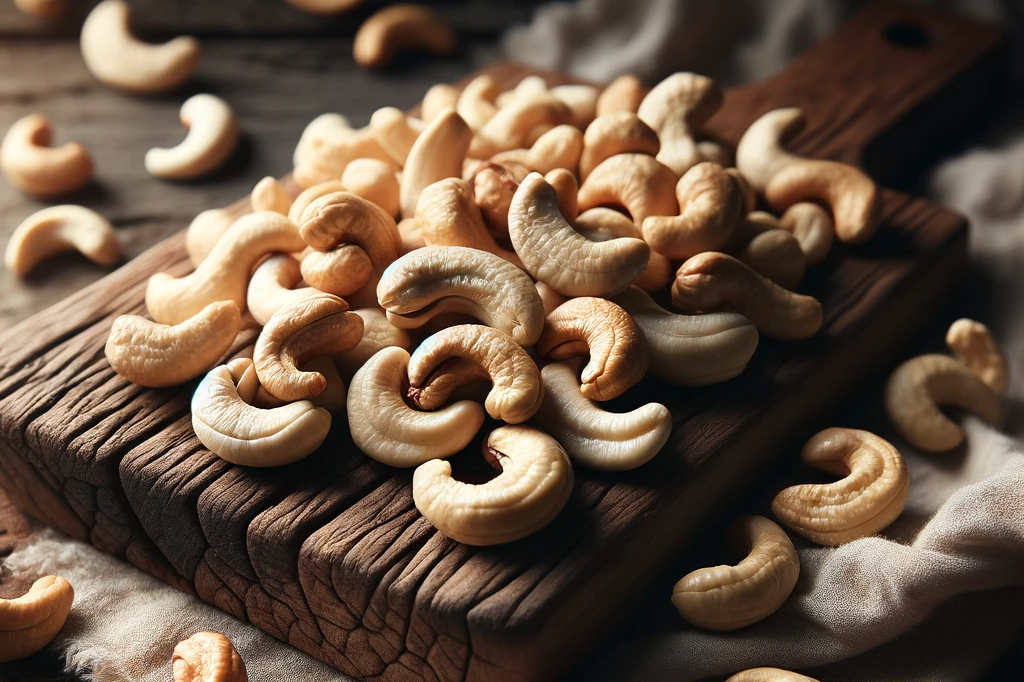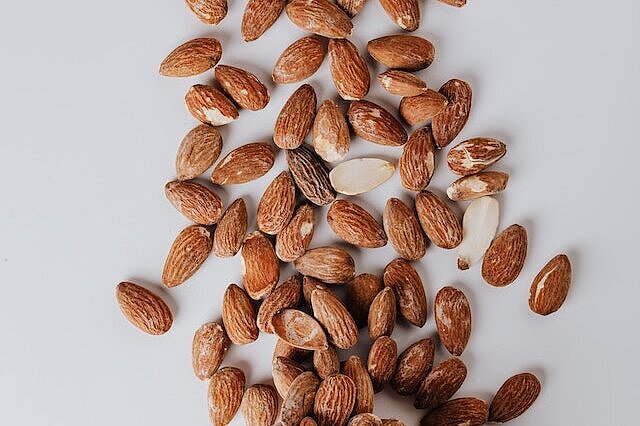Peanut

Do you love peanuts and want to share them with your dog? Or have you heard that peanuts are good for dogs and are wondering if this is true? In this article, you'll find out everything you need to know about peanuts in relation to dogs. We'll explain what peanuts are, what the pros and cons are and the best way to give them to your dog.
What are peanuts?
The peanut is a plant from the legume family and originally comes from South America. The fruits of the peanut are seeds that grow in a hard shell. This shell is often referred to as a nut, although botanically speaking the peanut is not a nut. The peanut is rich in vegetable protein, fat, fiber, vitamins and minerals. They are often processed into peanut butter or peanut oil or eaten roasted and salted as a snack.
What are the benefits of peanuts for dogs?
Peanuts can be healthy for dogs if they are fed in moderation. They contain many nutrients that can support the dog's immune system, skin and coat. They can also serve as a reward or treat, as many dogs like the taste and texture of peanuts. Some studies have even shown that peanuts can reduce the risk of heart disease in dogs.
What are the disadvantages of peanuts for dogs?
However, peanuts also have some disadvantages for dogs. For one thing, they are very high in calories and can lead to obesity if you give your dog too many. Secondly, they can trigger allergies or intolerances, resulting in symptoms such as itching, diarrhea or vomiting. Peanuts can also contain mold, which is toxic to dogs. You should therefore always make sure that the peanuts are fresh and undamaged.
How do I feed my dog peanuts?
If you want to feed your dog peanuts, you should follow a few tips:
- Only feed unsalted and unseasoned peanuts or peanut butter. Salt and spices can harm dogs.
- Only feed small amounts of peanuts or peanut butter. As a rule of thumb, peanuts should not make up more than 10 percent of your dog's daily calorie requirement.
- Feed only shelled and chopped peanuts or creamy peanut butter. Whole or crushed peanuts can cause choking or intestinal blockage.
- Feed peanuts or peanut butter only occasionally as a treat or as an addition to the normal food. They should not be your dog's main food source.
- Observe your dog after feeding peanuts or peanut butter for possible signs of allergy or intolerance. If you notice such signs, you should consult a vet immediately.
Peanuts can be a tasty and healthy ingredient for your dog if you feed them correctly. They can provide him with many nutrients and make him happy. However, you should also be aware of the possible disadvantages of peanuts and make sure that your dog doesn't get too many of them.
If you notice any signs of hypersensitivity or poisoning in your dog, you should see your vet immediately. We are not a substitute for a vet, but we try to be as accurate as possible. Every dog reacts differently and we recommend you get a second opinion or consult your vet if in doubt.
Stay healthy and take good care of your four-legged friend!😊
Similar to Peanut
The cashew nut is the stone fruit of the cashew tree, which originally comes from Brazil. The kidney-shaped nut grows on a fleshy fruit stalk, which is known as the cashew apple. The nut itself is...
Almonds are the seeds of the almond tree, which belongs to the rose family. They grow in a hard shell that must be removed before consumption. There are two types of almonds: sweet almonds and...
Walnuts are the fruit of the walnut tree, which belongs to the beech family. They grow in a green shell that opens in the fall to reveal the nut. The nut has a hard, brown shell and a soft,...
Hazelnuts are the seeds of the hazelnut, a plant from the birch family. The hazelnut grows as a shrub or small tree and bears round or oval nuts with a hard shell and a sweet kernel in the fall....



